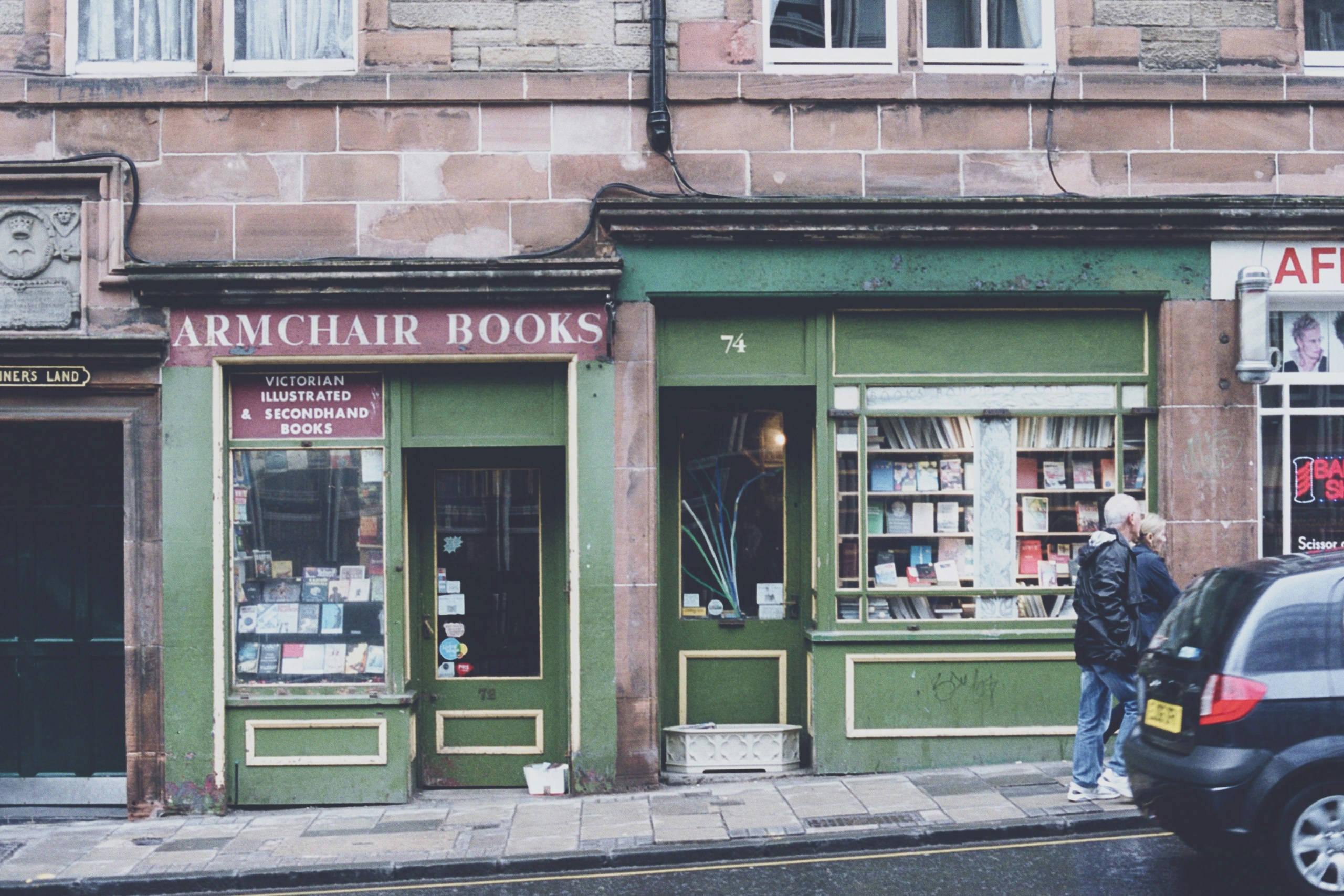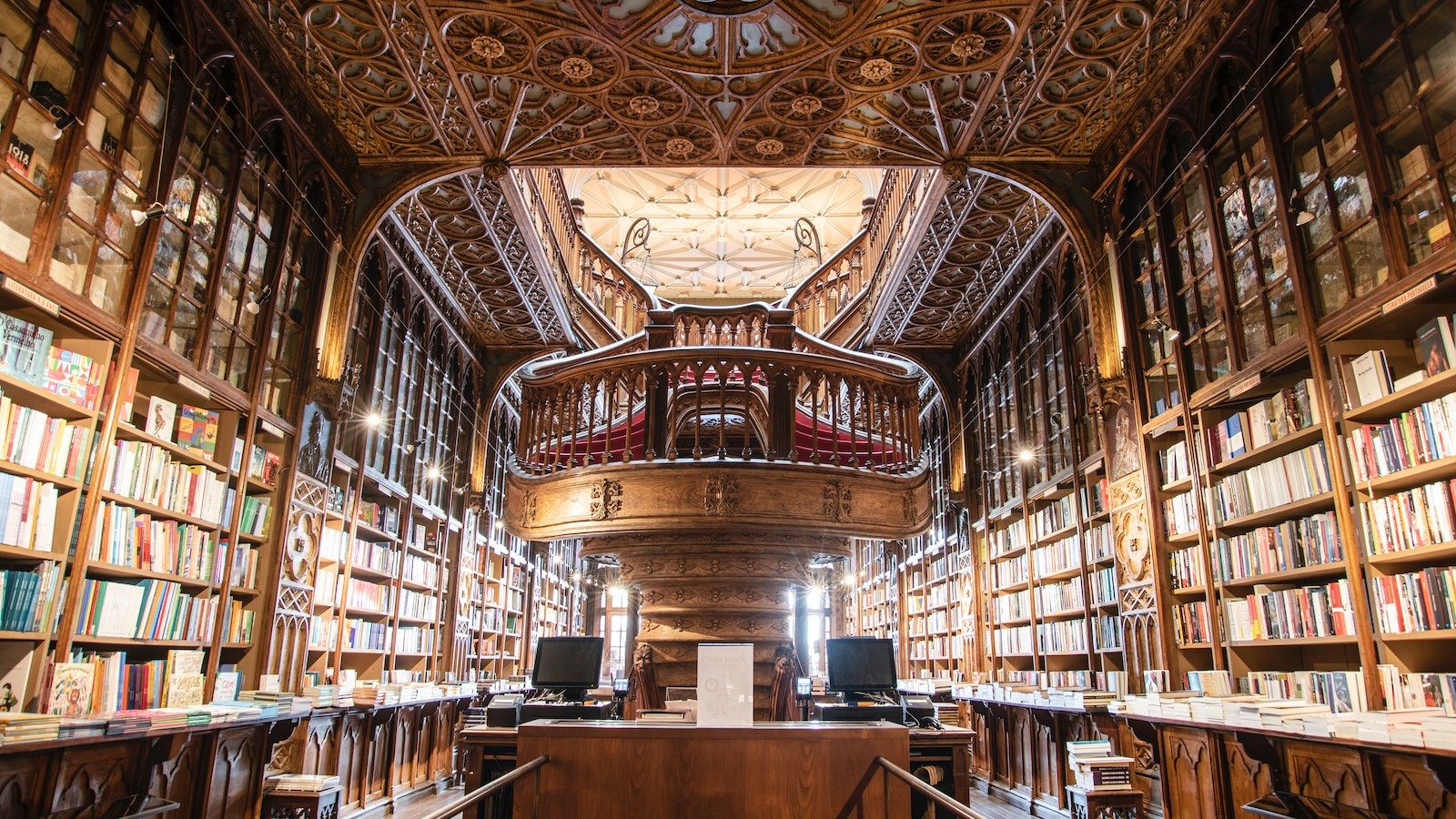How Much Does It Cost to Open a Bookstore?
While it’s true that the economic disaster left by the COVID-19 pandemic and the threat of a looming recession are valid concerns to consider whether to start a business, reports suggest that bookstores have been stable.
In fact, they withstood the challenges of the pandemic, especially independent bookstores. On the commercial side, Barnes & Noble is rising from the ashes of its embarrassing past. Indeed, bookstores big and small still thrive amid the era of video-sharing platforms like TikTok and the fierce competition against other forms of media, such as ebooks, audiobooks, games, music, movies, and TV series. In addition, print books are still the preferred format by most readers, with print sales still steady in 2022.
All of these suggest that bookstores aren’t likely going away anytime soon, even with the onslaught of technological advances such as AI, algorithms, and other disruptions in the publishing industry.
If you’ve always wanted to open a bookstore of your own, it’s understandable to be hesitant to invest in something that won’t likely work. But with the surge of BookTok — which drives book sales, unearths long-forgotten books from dusty bargain bins to the bestseller shelves, and helps authors bag book deals — it might be the best time to venture into this market.
Here’s what you need to know about the costs of opening a bookstore, including the things that are considered essential in opening a business. In this piece, I spoke with several independent bookstores in the United States in order to come up with estimated figures.

How to Get Started with Opening a Bookstore
First things first, in order to determine the average cost of opening a bookstore, you must create a sound business plan — or at least identify what makes up a business plan.
You need a budget (which we’ll break down and explore later), financials, and strategy among other things. For financials, think about how you’re going to fund the business. Do you have funds in the bank, or are you taking out loans? What’s the business strategy? How about market analysis? Who are the competitors? These all contribute to a chunk of all the costs of opening a bookstore.
It’s also important to decide whether to open a commercial bookstore or an indie one. It’s likely impossible to build a bookstore chain from the ground up at the outset unless you happen to have a huge amount of capital. Each of these two operates slightly differently, so you need to decide which one you’d like to start. One example of an indie bookstore is Powell’s and an example of a commercial chain is Barnes & Noble. An indie bookstore is much more geared towards a community, while commercial bookstores are focused on profit, often stocking a lot of bestsellers and “tried and tested” books on the shelves.
Then there are used bookstores, where they sell secondhand copies of books. Used bookstores aren’t necessarily indie bookstores. And indie bookstores don’t necessarily have to sell used books.

How Much Does an Average New and Used Bookstore Cost?
According to Eric Johnson of Recycle Bookstore, a used bookstore in California, the cost depends on the size of the bookstore; where it is; what the minimum wage in the area is; whether you sell used books, new books, or both (like they do); and how busy the store is (which impacts how many workers you can hire and for how much).
An average used and new bookstore would likely need about 3500 square feet of space, according to Johnson. He broke down his store’s expenses:
- For $50,000, you can have bookcases, counters, and registers, which you can make or buy yourself.
- Miscellaneous startup costs might total $10,000.
- Stock would cost about $300,000 if half of your stock is new books. Thus, a completely stocked new bookstore would cost $600,000, but used books would cost considerably less, possibly $60,000.
- Johnson advised that you should start with at least $30,000 in the bank, if not more: “You might have to pay people before you even open to set up the store, unless you are one of those people who can work tirelessly 14 hours a day. And if you are not, then you should rethink opening a business,” he said.
- Take note of expenses on a monthly basis. Rent could range between $9,000 and $13,000.
- Payroll would vary based on how much work you do, according to Johnson, but for a work of 120 hours per week at $15 per hour including health insurance, monthly compensation would be $10,000. If you were employing a manager to be your right-hand person, the salary would be slightly higher.
- Don’t forget other monthly expenses, which would most likely be around $2,000.
These all add up to roughly $22,000 per month in expenses for a basic bare-bones or average bookstore where the owner does the majority of the labor.
According to Johnson, assuming you sell books at a 50% markup (new book markups are generally lower), you would need to sell $44,000 each month to break even, and “you would have to sell a lot more to pay for the $450,000 you have invested to get started.”
Other than the costs, Johnson told me that all of this only succeeds if you pick the right location with the right community supporting you, have the right people working for you, are an “amazing person yourself with multiple skill sets,” and are willing to read a lot fewer books — because everyone gets busy when there’s lots of work to do.
“This also works if you absolutely love putting the right books into the hands of the right readers, and if you gain an immeasurable sense of peace and happiness from building a creative space where people can browse and explore the world of books,” he said. “As I have for the past 26 years.”

How Much Does a Small Independent Bookstore Cost?
An average bookstore of around 3,000 square feet of space would typically cost between $50,000 and $90,000 on average to start. For others wanting a smaller used bookstore of under 700 square feet, $23,500 would probably do. According to Friends of the Houston Public Library, $23,000 is the minimum to open a small independent bookstore. They break down the expenses into the following:
- Rent and utilities for the first month – $2,000
- Fixtures – $4,000
- Inventory management software – $7,000
- Signage and decorations, both external and inside – $5,000
- Business cards and a logo – $500
- Buildout – $500
- Promotion for the grand opening – $1,000
- Operating expenses for one month – $3,000

What You Need to Budget For
Space: When it comes to space, budget for the floor space, shelves, and location, and assess competitors and target customers. How much do you want to dedicate to a specific genre? Are there many people in the desired location? Who are they and what do they do? Are they university students or the general public? How much space is needed? These are important questions to ponder.
Stock: When it comes to stock, think about how to get books to sell. Should it be direct from publishers or wholesalers? What kinds of books will you stock more of? What kinds of books will you stock less of?
Depending on the source, some distributors offer discounts if you buy in bulk. So by considering all of these options, you can save time and money. This also ties into the target market — buy more books if there’s potential in a genre.
Website: In launching a business, think not only about the physical space but also the online storefront. How will you sell books through the Internet? How will you process online orders? How will you set up a web presence so that people would find out about the business?
Factor in the costs of a domain, web hosting, email, website design, payment provider, etc. Some of these have recurring costs, like a domain name and website/email hosting, so tally them up in the overall expenses.
Cataloging system: After figuring out how to contact book suppliers and how to procure them, how will you sort these out in order to track them easily? How will you manage the books, data, and inventory? What kind of software and point-of-sale systems will you use? How about logistics and delivery? Make sure to dig deeper into this to figure out what fits the store’s needs.
Staff: How about hiring additional help? How many people will you hire? What is their compensation package? If it’s just going to be you who would manage the store for now, then there’s no need to worry about all of this. But if there are plans to hire some help in the future as the business expands, then consider the cost of hiring.

Support and Alternative Funding Options for Independent Bookstores
A representative from Pegasus Books, an indie bookstore located in New York, told me to reach out to the American Booksellers Association, a nonprofit organization that supports indie bookstores in the U.S., as “they help booksellers get off the ground.” By being a member of the organization, you may have access to relevant data, industry networking, and business tools to help you improve your bookstore business.
Turn the Page Again, another New York-based used bookstore, mentioned that they’re partially funded by the Department of Health and Mental Hygiene. This is made possible because they are an affirmative business used bookstore in which they receive donated books. I asked them to provide me an estimate of how much they invested in starting the business, but they said that they are managed through the mental health agency Transitional Services in New York.
Similarly, Philly AIDS Thrift @ Giovanni’s Room, an LGBT-focused used bookstore in Pennsylvania, told me that they’ve been operating under a local 501c3 nonprofit since 2014, which means that they’re tax-exempt. “This also affects how costs are integrated into the model,” said one representative.
If you’re planning to open a bookstore that can help a marginalized community, these kinds of agencies and alternative business models might be of help.
As bookstores are still thriving despite many economic challenges, it might be the best time to start that dream business. And to give you an idea of how to proceed and what to expect, here’s what the future of bookstores looks like.
You might also be interested in how to start a bookmobile!



